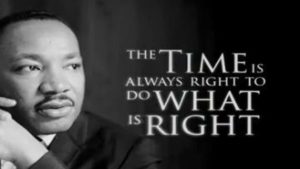WASHINGTON – January 21 is Martin Luther King Jr. Day, a national observance to honor the memory of the civil rights advocate. But we should also remember that Martin Luther King Jr. was an early and dedicated supporter of women’s rights.
As a preacher at Dexter Avenue Baptist Church in Montgomery, Alabama during the 1950s, Dr. King took a bold and forthright position in favor of contraception, a stance that was far from common among Southern preachers of the day. He supported the work of Planned Parenthood and agreed to serve on the sponsoring committee of a Planned Parenthood study on contraception. He wrote of his hopes that “the federal and state governments will begin to appropriate large sums to educate people to the need for such (contraceptive) devices.”
It was The Committee for Equal Justice for Mrs. Recy Taylor, a black women’s organization formed to stop white men from raping black women, that trained Rosa Parks and others as activists. Dr. King acknowledged the education he got from women, including black welfare mothers who opposed the Vietnam War and influenced his historic Poor People’s Campaign.
Martin Luther King Jr. marched with women who were underpaid and overworked. He spoke out for women who were denied equality. He organized for women who were victims of oppression. He knew that women’s rights are civil rights, and helped shape many of the movements in which we participate today. NOW honors the memory and the legacy of Dr. King on this holiday.